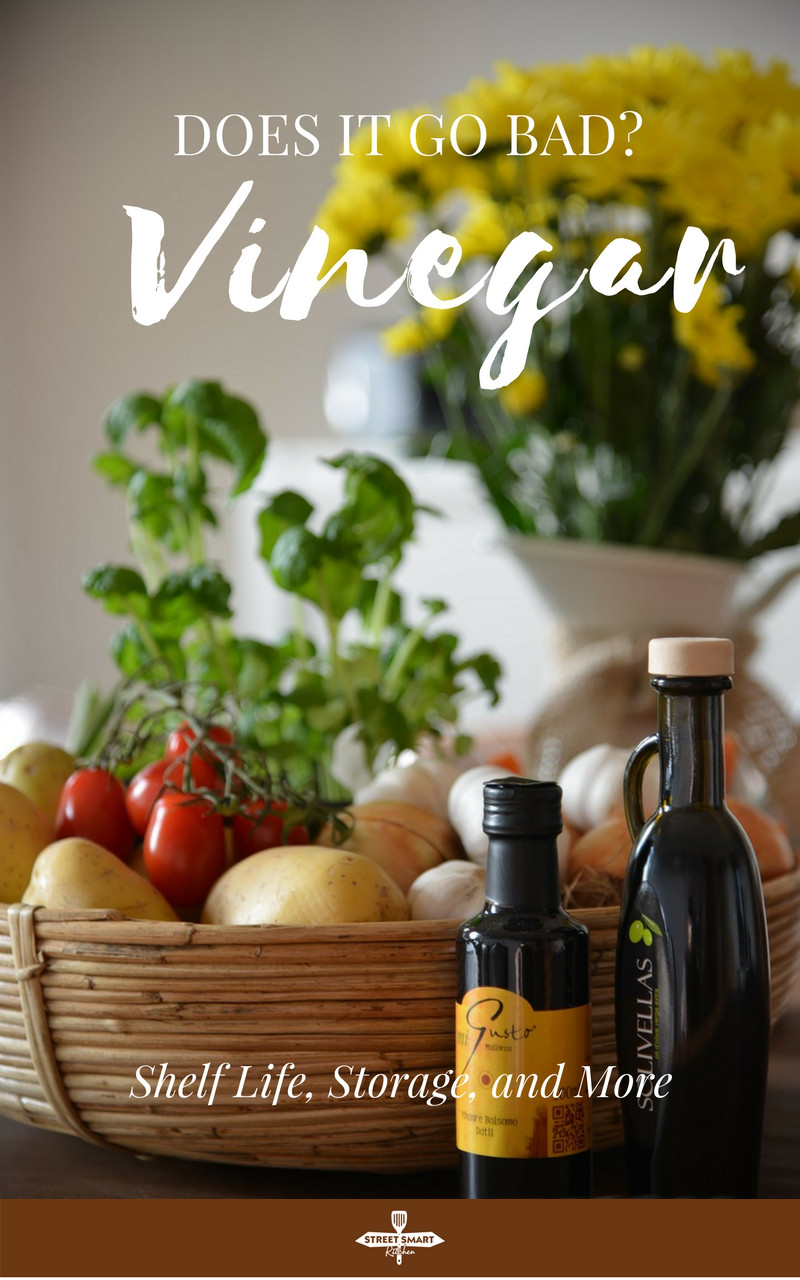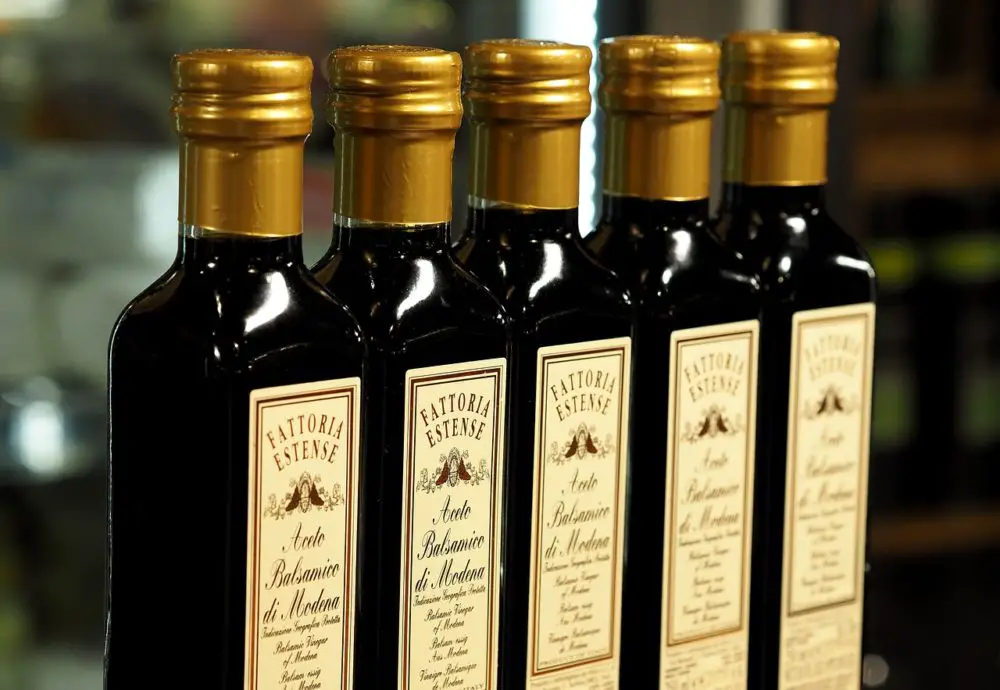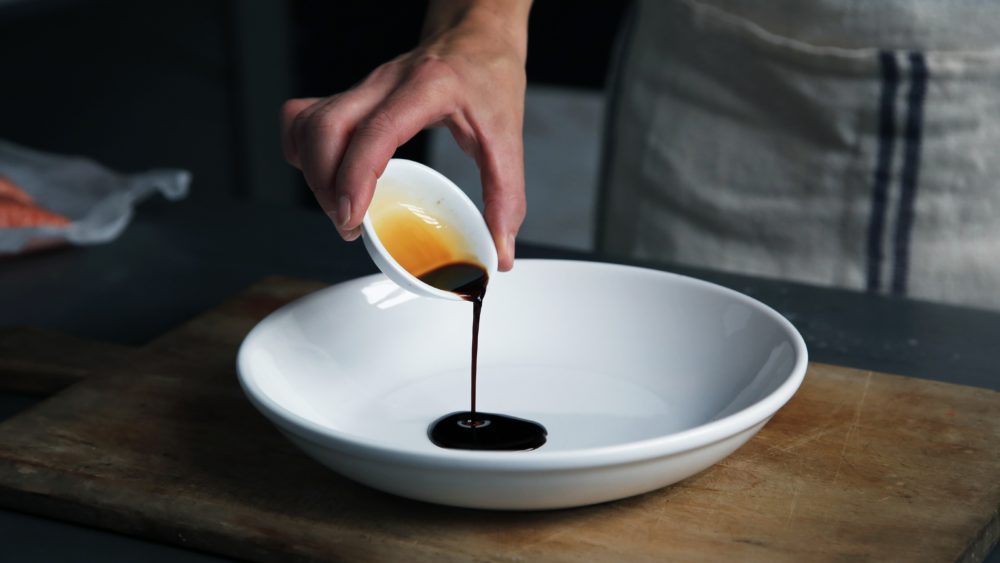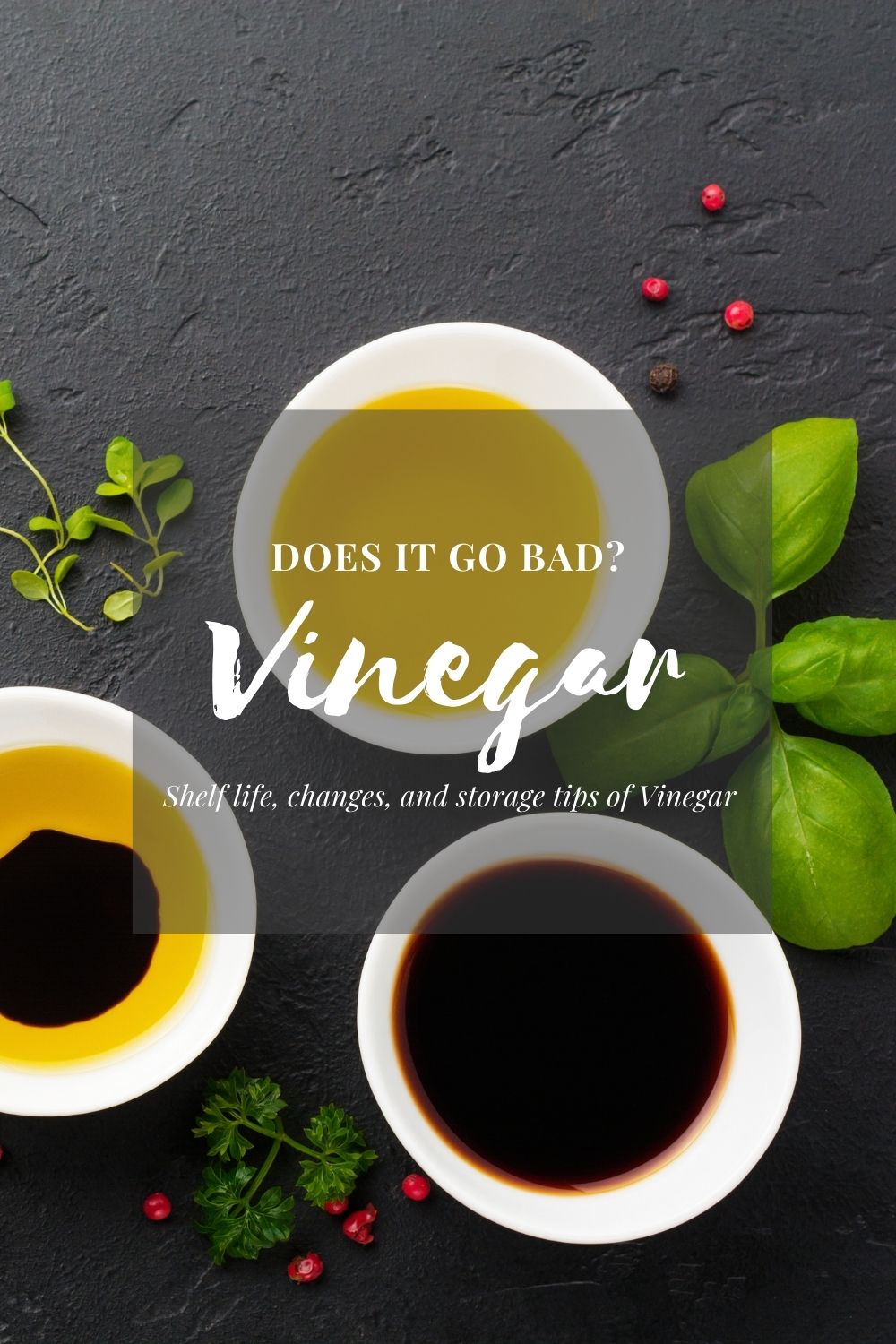Does Vinegar Go Bad? Vinegar’s Shelf Life, Storage, and More
Does vinegar go bad? Everything you need to know about the shelf life, changes, and storage tips for the most common five types of vinegar.

Vinegar usually does not expire and can last indefinitely. However, if not stored properly, vinegar will decline in quality and lose its acidity and flavor.
In many home kitchens, vinegar is one of the most useful condiment. If you like the sour flavor of vinegar, it could be a great dipping sauce or you can use it to enhance the flavor of your dishes. In some cases, the acidity of vinegar can take the edge off of some bitter ingredients and balance the overall taste of your dish.
Aside from its ability to enhance flavor, vinegar can also alter the color and texture of foods. The aromatic and sharp sour, sometimes a little sweet or salty flavor is perfect for a salad dressing, a sauce, or a marinade.
The most common types of vinegar used in the United States are distilled white vinegar, apple cider vinegar, red wine vinegar, balsamic vinegar, and rice vinegar.
Distilled white vinegar is known for its bold flavor and is good for pickling. The subtle fruity flavor of apple cider vinegar is best for dressings, marinades, and for cooking bone broth. The rich flavor of red wine vinegar is also great for marinades. Balsamic vinegar brings out the best in savory recipes and desserts. Rice vinegar is less harsh than white vinegar and famously used for sushi, salad dressings, and stir-fries.
You see, the wide selection of vinegar types can give you the opportunity to experiment with different recipes. However, the quality of vinegar deteriorates over time, so you might wonder – how long can vinegar keep its quality?

SHELF LIFE OF VINEGAR
As mentioned, vinegar does not expire. Like other condiments, vinegar may have a best before date but not an expiration date. This means vinegar is still safe and usable after the best before date has lapsed.
According to the Vinegar Institute, vinegar is self-preserving and does not need refrigeration because of its acid nature. It can keep for a long time. However, if not stored properly, the quality of vinegar will decline. The acetic acid in vinegar can be affected by water absorbed from the air. This will affect the flavor of your vinegar. Let’s take a look at the shelf life of different kinds of vinegar.
FOR BEST QUALITY |
SAFE AND USABLE |
|
1. Distilled White Vinegar |
indefinitely | indefinitely |
2. Apple Cider Vinegar |
5 years | indefinitely |
3. Red & White Wine Vinegar |
2 years | indefinitely |
4. Balsamic Vinegar |
2 to 3 years | indefinitely |
5. Rice Vinegar |
2 years | indefinitely |
CHANGES IN VINEGAR
While vinegar’s shelf life is almost indefinite, exposure to air and direct sunlight will affect its quality over time. Improperly stored vinegar will show changes in appearance and taste. Although these changes are normal and harmless, it’s important to be aware of them.

Change in Color
The color of vinegar depends on the type. It is available in white, pale yellow, red and black. If your vinegar’s color changes, then it has lost its best quality.
Development of Haze and Sediment
If your vinegar has stuff floating on it or sediments, then it is not on its peak quality anymore. Cloudy vinegar can be filtered to get rid of sediments.
The Mother of Vinegar
The mother of vinegar is the slimy jelly-like substance that forms commonly in apple cider vinegar and other vinegar variety. While it’s not exactly appealing in appearance, the mother is completely harmless. You can easily filter it out using a coffee filter.
Change in Taste
Water absorbed from the air can weaken the acidity of the vinegar. It will lose its flavor if the acidity declines. Though it’s safe to use, vinegar with an off taste will affect your recipes.
VINEGAR STORAGE TIPS
Proper food storage usually helps maximize the quality of the foods. It’s the same with vinegar. Here are four tips on how to properly store vinegar for an extended period.
- Keep your unopened bottle of vinegar away from direct sunlight.
- Store your vinegar in a cool dark place such as your pantry or a kitchen cabinet.
- Once opened, keep your vinegar in its original container.
- Put back the lid or cap of your vinegar immediately after using.
With its indefinite shelf life, feel free to stock on different types of vinegar for all your cooking needs. In need of some inspirations? Check out these recipes below.
Strawberry Cucumber Salad | Slow Cooker French Onion Soup | Chimichurri Sauce Recipe | Hot and Sour Soup | One-Pan Balsamic Chicken with Roasted Vegetables | Spicy Chinese Noodles | Pork over Warm Kale and Asparagus Salad | Vegan Stuffed Portabella Mushrooms | Stuffed Jalapeños

About the Author
Sharon Chen is an Integrative Nutrition Health Coach, an author and a sous vide fanatic who believes food not only brings healing but also connection. As the creator of StreetSmart Kitchen, she's on a mission to help you find balance, ease, joy, and simplicity in the kitchen as you improve your well-being.




I have successfully made a few batches of red wine vinegar. several months (probably 8 or 9) I started about a gallon of red and a half gallon of white. I kept them shielded from sunlight and at about 70 f. I checked them today and the white has a very thick mother and “stuff” in the liquid under. The odor is fairly mild and taste not very sour. The red is similar. Can i add more wine to recover or should I start over?
Good morning I would like to know if you can preserve bitter melon White distilled vinegar in a jar
very informative
Hello,
I would like to know where did you find the data about the shelf-life of varous vinegars.
Thanks!